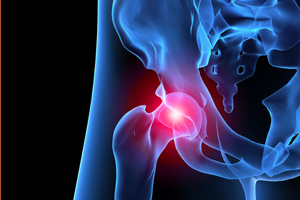
The FDA’s orthopedic devices advisory panel will meet in June to consider new information about the safety and effectiveness of metal-on-metal hip implants, amid a growing public outcry and scientific concern about the devices.
The federal watchdog agency is looking for input from physicians, patients and researchers in determining whether the devices should be subject to more stringent review before hitting the U.S. market.
The implants became the target of intense criticism after Johnson & Johnson (NYSE:JNJ) recalled hip systems made by its DePuy Orthopedics subsidiary over concerns that a higher-than-normal number of patients required surgeries to correct or remove defective implants.
"We are asking outside scientific and medical experts to discuss recent information on these devices so that the agency can continue to make reliable safety recommendations to patients and their health care providers," FDA Center for Devices & Radiological Health deputy director of science Dr. William Maisel said in prepared remarks.
Metal-on-metal hips have spurred much controversy, with one U.K. study calling for an outright ban as more studies find that they fail more often than other hip replacements.
The scientists looked at more than 31,000 metal-on-metal implant cases in the world’s largest hip replacement database, finding 6.2% of patients with all-metal artificial hips needed a 2nd operation within 5 years.
Another recent study, published through a joint investigation by the British Medical Journal and BBC Newsnight, found the controversial implants may have exposed patients to toxic compounds and put them at risk of developing cancer, cardiomyopathy, muscle and bone destruction and changes to their DNA.
The controversy spurred a clutch of patient lawsuits and a closer look at Johnson & Johnson’s recall, raising questions about the company’s timing and motives.
DePuy has insisted that the recalled metal-on-metal hip resurfacing implants had failed due to improper positioning during surgery, but internal emails from 2009 obtained by the the New York Times suggested that the company was aware of “a significant number of revisions” necessary for the devices.
The email, written by DePuy executive Pam Plouhar, outlines the FDA’s decision not to grant pre-market approval to the ASR implant and notes the higher of corrective surgeries required by patients who received the device compared to a control group.
Another report suggested that the FDA hinted at issues with the device maker’s metal-on-metal hip implants, including a "high concentration of metal ions" in blood tests of patients who received the device, a few weeks before the company began phasing out the products.
J&J has maintained that the decision to shift to phase out the metal-on-metal hips, which it began to do in November 2009, was "purely a business decision." The devices were recalled in August 2010.
"Up until August 2010, the totality of the data available to DePuy – including data from national joint registries, published literature, company-sponsored clinical trials, internal complaints data and external clinical research reports – indicated that the revision rate of the ASR Hip System was similar to that reported for other large diameter metal-on-metal monoblock and resurfacing hip devices," a company spokeswoman told MassDevice.com in an email.
She added that the FDA has not provided any guidelines as to a threshold for metal ions in the blood, citing insufficient data on any specific level that might cause adverse systemic effects.
"Based on the limited number of case reports in published literature, the true incidence or prevalence of adverse systemic effects from MoM hip implants is not known at this time, but is believed to be rare," according to the FDA’s guidance.
The FDA’s advisory panel will meet with stakeholders June 27-28, with the location of the meeting yet to be determined.

